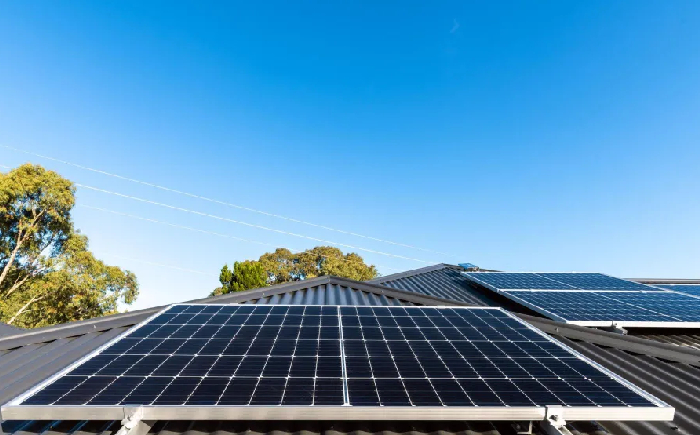How Solar Panel Installation Can Save You Money in the Long Run
Solar panel installation is increasingly becoming a popular choice for homeowners looking to save money on energy bills while making an environmentally responsible decision. While the initial cost of installing solar panels can be substantial, the long-term savings far outweigh the upfront investment. With the right solar system in place, homeowners can significantly reduce or even eliminate their monthly electricity bills, providing financial relief that accumulates over time. Here’s how solar panel installation can lead to substantial savings in the long run.
1. Reducing Your Monthly Electricity Bills
The most immediate and noticeable way that solar panels save you money is by drastically reducing your electricity bill. Solar panels work by harnessing the energy from the sun and converting it into electricity, which can then be used to power your home. Depending on the size of your solar system and the amount of sunlight your home receives, you may be able to reduce your electricity bills by up to 80% or more. In some cases, homeowners who install solar panels can completely eliminate their reliance on the grid, producing all the power they need from the sun. This reduction in electricity usage translates to consistent monthly savings.
2. Energy Independence and Protection Against Rising Costs
One of the most compelling reasons to install solar panels is to gain energy independence. As electricity prices continue to rise, solar power offers a stable and predictable energy cost. When you generate your own electricity, you are no longer subject to fluctuating utility prices that can increase over time. Solar energy allows you to lock in lower energy costs, providing protection against future price hikes. In this way, solar panels act as a safeguard against unpredictable utility rate increases, ensuring that your energy costs remain consistent and affordable for years to come.
3. Taking Advantage of Incentives and Tax Benefits
In addition to reducing your monthly energy bills, installing solar panels can offer immediate financial relief through tax incentives and government rebates. The federal government offers the Solar Investment Tax Credit (ITC), which allows homeowners to deduct a percentage of the cost of installing solar panels from their federal taxes. Many states and local governments also offer rebates or incentives that can help offset the cost of installation. These incentives can reduce the upfront investment required for solar panel installation, allowing homeowners to start saving money sooner. With the combination of tax benefits and rebates, the effective cost of installing solar panels becomes much lower than many people anticipate.
4. Increased Home Value
Another long-term financial benefit of solar panel installation is the increase in your home’s value. Multiple studies have shown that homes with solar panels sell for more than those without. Solar panels are seen as a valuable home feature because they offer long-term energy savings, which is an attractive selling point for potential buyers. A home with solar panels is considered more energy-efficient and sustainable, making it more desirable in the real estate market. While the exact increase in home value depends on the location and the size of the solar system, the added value can make your home more competitive and result in a higher resale price if you decide to sell in the future.
5. Low Maintenance and Longevity of Solar Panels
Solar panels are incredibly durable and require minimal maintenance, meaning the savings continue long after installation. Once your system is up and running, it will typically only need periodic cleaning and inspections to ensure it’s working at peak efficiency. With a lifespan of 25 to 30 years or more, solar panels provide long-term value with little ongoing expense. Their low-maintenance nature means that, unlike other home systems, you won’t face high repair or replacement costs over time. The long lifespan of solar panels ensures that your initial investment continues to pay off year after year, making them a wise choice for long-term savings.
6. Potential for Energy Credits or Selling Back Excess Power
In some areas, homeowners with solar panels can earn money by selling excess electricity back to the grid. This process, known as net metering, allows you to receive credit for the extra energy your solar panels generate but that you don’t need to use. These credits can be applied to your future electricity bills, further reducing your overall energy costs. In some cases, the credits can even be exchanged for cash or used to offset energy costs during the months when your system generates less power (such as during the winter). By taking advantage of net metering programs, homeowners can maximize the financial benefits of their solar panel systems and increase their savings over time.
Investing in solar panels is a smart financial decision that can lead to significant savings in the long run. By reducing monthly electricity bills, protecting against rising energy costs, and taking advantage of tax incentives, homeowners can see an immediate return on their investment. Solar panels also increase home value and require minimal maintenance, making them a durable and cost-effective solution for long-term savings. Whether you’re motivated by saving money or reducing your environmental impact, installing solar panels is a decision that pays off financially and provides peace of mind for years to come.
